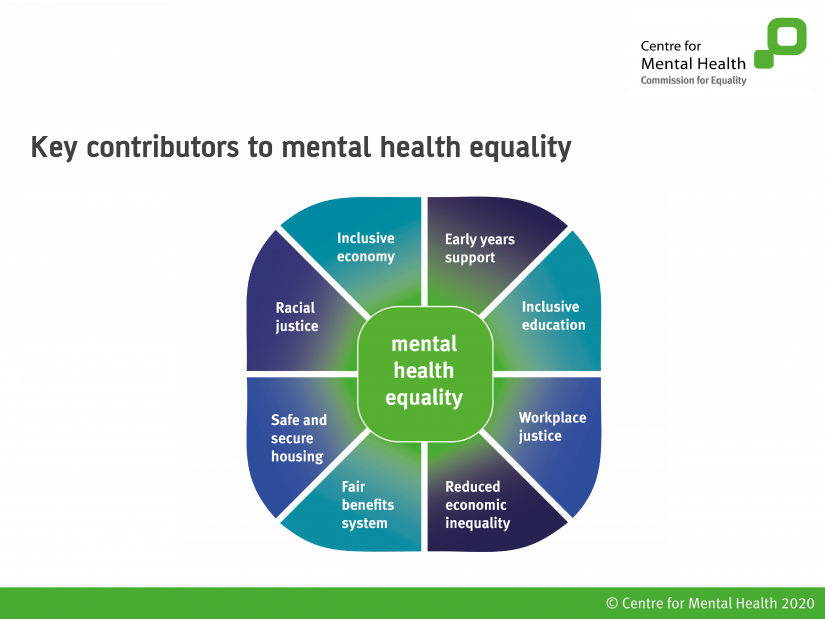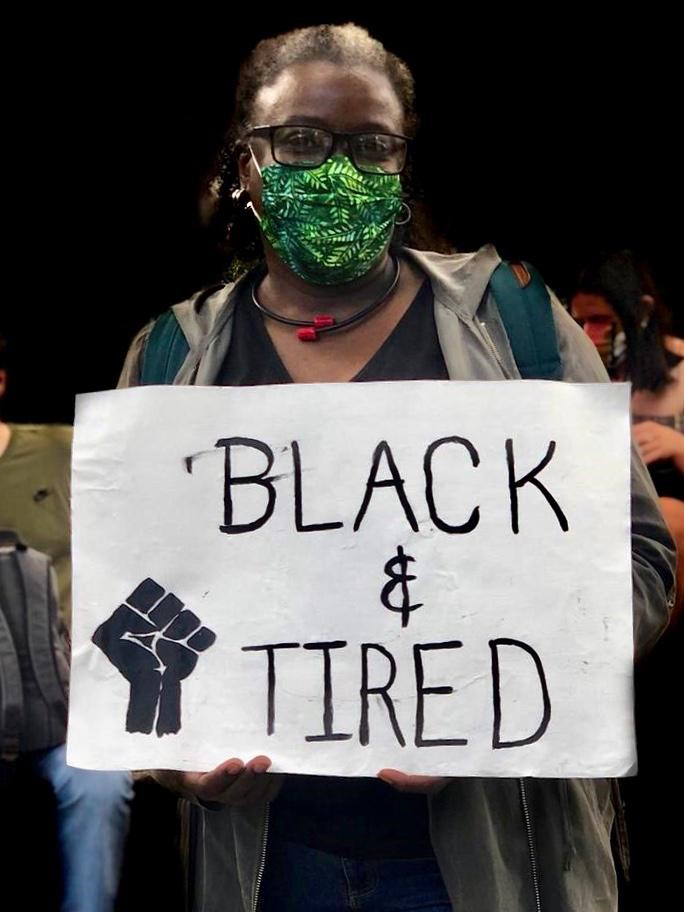The Commission for Equality in Mental Health has published its final report, ‘Mental Health for all?’, on what needs to be done to address inequalities in mental health.

With Black men facing significant inequalities in mental health, Black Men’s Health UK welcomes this report. We appreciate the work they’ve done to outline specific things that need and can be done to improve the mental.
The report makes ten recommendations:
1. Communities can lead the way in pursuing mental health equality
This is essential to address the determinants of mental health: community leadership and engagement could help improve people’s lives, transform access by offering support people value, and change outcomes – all three elements of the ‘triple barrier’. Community and user-led organisations would have the resources to enable people facing inequalities to have greater voice and power, to support people ‘where they are’, with help tailored to physical, cultural and social needs, and to influence public services through partnerships and learning.
2. Local authorities need an urgent funding boost to coordinate action to pursue mental health equality
Local authorities have shown that they can build partnerships to help them to understand needs and assets in communities, identify gaps and inequalities in existing support available, and help develop practical solutions. But to fulfil their potential, local authorities urgently need funding to build their capacity to work in a collaborative way with communities
3. Statutory bodies should maximise their role as anchor institutions in their local economies
Creating more inclusive economies will give local people more opportunities to participate in activities that improve their wellbeing, prosperity and life chances, and have greater influence over their environment. Inclusive employment opportunities will also help to develop a more diverse public service workforce, which better represents the communities which experience mental health inequalities and which offers decent employment conditions including a living wage
4. Mental health services must implement the Advancing Mental Health Equalities strategy in full:
Fully implemented, the strategy will facilitate urgently needed improvements in mental health support: improving access, experience and outcomes for groups that currently miss out. It will increase transparency about how well NHS organisations are addressing mental health inequalities, which will enable greater accountability.
5. Mental health services should provide a genuinely ‘whole population’ offer:
A whole system approach to mental health services should mean no one is left out because of gaps between different services – so people are offered support quickly and not made to ‘battle’ for help. It should mean working in partnership with local and specific communities to ensure services meet the greatest local needs and redress inequalities in access, experience and outcomes.
6. Mental health services should be accountable for reducing inequalities in access, experience and outcomes:
Increasing accountability can lead to improvements in service delivery, produce more learning about what works in addressing inequalities, and foster more trust between communities and statutory services.
7. The Government must tackle poverty and commit to reduce income and wealth inequality:
Reducing inequality of wealth and income would reduce the number of people who experience poor mental health and also offer people who experience mental health challenges greater security and better opportunities to lead fulfilling and valued lives.
8. The Government must commit to tackling all forms of racism, discrimination and exclusion
Addressing these injustices will help break the cycles of discrimination which lead to mistrust, trauma, and fractured relationships between those who experience the poorest mental health and the services that should keep them safe and healthy. This needs leadership from national government, but it can also be led by combined and local authorities, NHS organisations, police services and other public sector bodies.
9. The Government should set a clear ambition and roadmap for achieving mental health equality
Embedding accountability and establishing clear actions across government will drive an immediate response to the inequalities illuminated and exacerbated by the pandemic and create a legacy that tackles mental health inequalities and enables the population to thrive longer term.
10. The Government should refresh and update the Public Sector Equality Duty:
This enabling measure would create a bedrock for mental health equality by deepening the duties on public bodies to pursue equality and ensuring that wealth and income inequalities are given the same status in the implementation of the law as the other nine protected characteristics. It would also extend accountability by placing greater expectations on organisations to demonstrate to their public how they are addressing inequalities and what progress they are making to close gaps.
Take action
The Centre for Mental Health is asking you to email your MP to ask them to take action towards the report’s recommendations.







